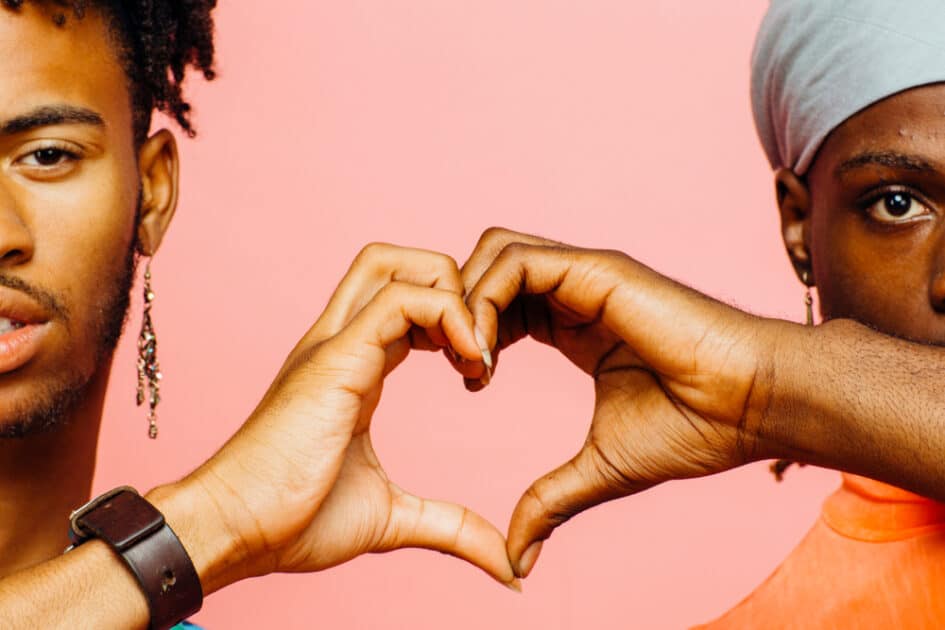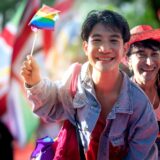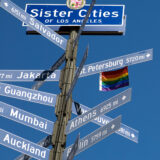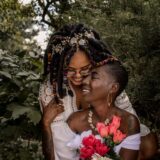At its heart, gay culture is a vibrant and inclusive community that embraces individuals who identify as gay, homosexual, or any other non-heterosexual orientation. It goes beyond sexual orientation and encompasses its members’ collective experiences, customs, and shared identity.

Gay culture is a fundamental pillar of the broader LGBTQ+ community, which includes Lesbian, Gay, Bisexual, Transgender, Queer/Questioning, and many other diverse identities. Gay culture is a powerful force of solidarity, providing a sense of belonging and support for individuals historically facing discrimination and societal challenges.
It celebrates diversity, resilience, and the unique contributions that gay individuals bring to the world.
LGBTQ+ Community and Identity
The LGBTQ+ community embraces many identities, including lesbian, gay, bisexual, transgender, queer/questioning, intersex, asexual, etc. It is a beautiful tapestry of diverse experiences, backgrounds, and perspectives that enriches society.
Within the LGBTQ+ community, individuals find solace and understanding among others who have faced similar challenges and triumphs.
They form connections based on shared experiences, creating a powerful support system that celebrates individuality and fosters personal growth.
Being part of the LGBTQ+ community means being part of a more significant movement that seeks to challenge discrimination, promote equality, and advocate for the rights of all individuals, regardless of sexual orientation or gender identity.
This community has been pivotal in driving social change and advancing LGBTQ+ rights.
LGBTQ+ Rights Movement
It encompasses a rich history of activism, resilience, and the pursuit of equality for individuals who identify as gay or any other non-heterosexual orientation. This movement has profoundly impacted society, from pivotal events like the Stonewall uprising to ongoing advocacy efforts.
The Stonewall uprising, which took place in New York City in 1969, marked a turning point in the LGBTQ+ rights movement. It was a series of protests and demonstrations by gay individuals against police harassment and discrimination.
The uprising galvanized the community, igniting a spirit of resistance and sparking a renewed sense of collective identity and purpose.
Following Stonewall, the LGBTQ+ rights movement gained momentum as individuals, organizations, and allies united to fight for equal rights, legal protections, and social acceptance.
Activists and advocates raised their voices, demanding an end to discriminatory practices and advocating for changes in laws and policies that perpetuated inequality.
Gay Icons and Influencers
Gay culture has been enriched by numerous gay icons and influencers who have fearlessly embraced their identities and made significant societal contributions. These individuals, across various fields such as entertainment, politics, and activism, have used their platforms to promote visibility, challenge stereotypes, and inspire others to embrace their true selves.
Gay icons and influencers have played a pivotal role in shaping public perceptions and fostering understanding and acceptance of the LGBTQ+ community.
Through their talent, advocacy, and personal stories, they have become beacons of hope and inspiration for individuals navigating their journeys of self-discovery and self-acceptance.
In entertainment, gay icons have graced screens, stages, and airwaves, captivating audiences with their talent, charisma, and authenticity. They have shattered stereotypes and defied societal expectations, showing that sexual orientation does not limit one’s ability to succeed and thrive in their chosen field.
These icons have used their voices and influence to bring attention to LGBTQ+ issues, paving the way for more excellent representation and acceptance. They have challenged the notion that being gay hinders success, proving that talent, hard work, and passion know no boundaries.
Beyond entertainment and politics, gay icons and influencers have been instrumental in promoting visibility and representation in various sectors. They have been activism, community organizing, and philanthropy leaders, tirelessly working towards a more inclusive and equitable society for all.
LGBTQ+ Social Spaces
Play a crucial role in fostering a sense of community, support, and belonging for individuals within the LGBTQ+ community.
These spaces provide opportunities for connection, self-expression, and celebrating diverse identities. Here are some critical aspects of LGBTQ+ social spaces:
- Bars and Clubs: LGBTQ+ bars and clubs have long been a cornerstone of gay culture. They provide inclusive environments where individuals can socialize, dance, and be authentic without fear of judgment or discrimination. These spaces often host drag shows, themed events, and parties that celebrate LGBTQ+ culture and create a sense of camaraderie.
- Community Centers: LGBTQ+ community centers serve as education, support, and advocacy hubs. They offer various resources, including counseling services, support groups, workshops, and social events.
These centers provide a safe space for individuals to connect with others, access important information, and receive support for various needs within the LGBTQ+ community. - Online Platforms: With the advent of the internet, online platforms have become vital LGBTQ+ social spaces. Websites, forums, and social media platforms provide opportunities for individuals to connect, share experiences, and build communities virtually.
- Pride Festivals and Events: Pride festivals and events are vibrant celebrations of LGBTQ+ culture and identity. They bring together people from all walks of life to honor and affirm the LGBTQ+ community.
These events include parades, marches, live performances, art exhibitions, and educational workshops. Pride festivals offer a space where individuals can express themselves freely, surrounded by acceptance and love. - Sports and Recreation Groups: LGBTQ+ sports and recreation groups provide opportunities for individuals to engage in physical activities while fostering a sense of community.
These groups promote inclusivity, diversity, and camaraderie through sports leagues, fitness classes, and outdoor adventures. - Support Groups: LGBTQ+ support groups offer a safe and confidential space for individuals to share their experiences, challenges, and triumphs. These groups provide emotional support, guidance, and resources for individuals navigating their journey of self-discovery, self-acceptance, or dealing with specific issues within the LGBTQ+ community.
- Art and Cultural Spaces: LGBTQ+ art and cultural spaces celebrate the rich creativity and talent within the community. These spaces showcase LGBTQ+ artists, performers, writers, and filmmakers, providing platforms for their work to be appreciated and celebrated.
Art exhibitions, theater productions, film festivals, and literary events within these spaces contribute to the visibility and recognition of LGBTQ+ contributions to the arts. - Travel and Tourism: LGBTQ+friendly travel destinations and accommodations provide spaces where individuals can feel safe and welcomed while exploring the world. These spaces ensure that individuals can travel without fear of discrimination and enjoy the beauty of different cultures and destinations.
LGBTQ+oriented travel agencies and tour operators help curate experiences that cater to the specific needs and interests of LGBTQ+ travelers.
These LGBTQ+ social spaces create connections, support, and personal growth opportunities. They play a vital role in fostering a sense of community, acceptance, and empowerment within the LGBTQ+ community, contributing to preserving and celebrating gay culture.
Discrimination and Homophobia
It significant challenges that LGBTQ+ individuals face in various parts of the world. Despite progress in advancing LGBTQ+ rights and acceptance, prejudice, social stigma, and unequal treatment persist.
Acknowledging these issues and working towards creating a more inclusive and accepting society for all is essential.
Discrimination against LGBTQ+ individuals can manifest in various forms, including but not limited to:
- Legal Discrimination: In some regions, laws or policies discriminate against LGBTQ+ individuals, denying them equal rights and protections. This can include restrictions on marriage equality, adoption rights, or employment discrimination based on sexual orientation or gender identity.
- Social Stigma and Prejudice: Homophobia and negative attitudes towards LGBTQ+ individuals can lead to social stigma, exclusion, and marginalization. This can result in shame, invisibility, and hiding one’s true identity to avoid discrimination or violence.
- Violence and Hate Crimes: LGBTQ+ individuals are at a higher risk of experiencing violence, harassment, or hate crimes due to their sexual orientation or gender identity. This can range from verbal abuse to physical attacks, which have severe emotional and physical consequences.
- Family and Community Rejection: Some LGBTQ+ individuals face rejection from their families or communities when they come out or express their true identities. This rejection can lead to strained relationships, isolation, and a lack of support networks.
- Bullying in Schools and Workplaces: LGBTQ+ individuals, particularly youth, are often targets of bullying and harassment in educational institutions or workplaces due to their sexual orientation or gender identity. This can significantly impact their well-being, mental health, and educational or professional opportunities.
Addressing discrimination and homophobia requires a multi-faceted approach:
- Education and Awareness: Promoting education and awareness about LGBTQ+ issues can help challenge stereotypes, debunk misconceptions, and foster empathy and understanding.
This includes comprehensive sex education in schools, workplace diversity training, and public campaigns promoting acceptance and inclusion. - Legal Protections and Policies: Advocating for inclusive laws and policies that protect LGBTQ+ individuals from discrimination is crucial. Work on marital equality, access to healthcare, and the legal acknowledgment of gender identity are all aspects of this effort.
- Support Networks and Resources: Establishing support networks, community centers, helplines, and counseling services specifically tailored for LGBTQ+ individuals can provide crucial support for those facing discrimination or struggling with their identities. These resources can offer a safe space, guidance, and empowerment.
- Promoting Acceptance and Visibility: Encouraging positive representation of LGBTQ+ individuals in media, arts, and popular culture helps to challenge stereotypes and increase understanding. It is essential to promote diverse narratives that humanize LGBTQ+ experiences and foster a sense of acceptance and belonging.
- Allyship and Advocacy: Allies, both within and outside of the LGBTQ+ community, play a vital role in challenging discrimination and homophobia. Supporting LGBTQ+ individuals, amplifying their voices, and advocating for their rights help create a more inclusive society.
By addressing discrimination and homophobia, society can foster a more inclusive and accepting environment where LGBTQ+ individuals can live authentically without fear of discrimination.
Through collective efforts, education, and advocacy, progress can be made in building a society that celebrates and respects the diversity of all its members.
Gay Mental Health and LGBTQ+ Community
The mental health of gay individuals within the LGBTQ+ community is influenced by various factors, including societal attitudes, discrimination, and the challenges associated with navigating a world that may not always accept or understand their identities.
It is crucial to address this community’s unique mental health needs and provide accessible support systems to foster well-being and resilience.
LGBTQ+ individuals often experience minority stress, which stems from the discrimination, prejudice, and social stigma they may face based on their sexual orientation or gender identity.
This stress can lead to mental health challenges such as depression, anxiety, and low self-esteem. Internalized homophobia, which refers to the self-stigmatization and negative beliefs or feelings an individual may have towards their sexual orientation, can also contribute to mental health issues. It can result in shame, self-doubt, and internal conflict that impact well-being.
Coming out, the process of revealing one’s sexual orientation or gender identity can be a significant source of stress for gay individuals. Fear of rejection, discrimination, or loss of social support can affect mental health and well-being during this process.
A solid support system, including friends, family, and community, promotes positive mental health among gay individuals. Supportive relationships and environments that accept and validate one’s sexual orientation or gender identity can contribute to a sense of belonging and overall well-being.
Accessible and culturally competent mental health care is vital for the LGBTQ+ community. Mental health practitioners must thoroughly understand LGBTQ+ issues, offer supportive, nonjudgmental care, and establish safe spaces where people may explore their identities and discuss their worries.
Building and nurturing resilience involves fostering a positive self-identity, developing coping strategies, seeking support, and engaging in self-care practices that promote mental well-being.
Addressing the mental health needs of the LGBTQ+ community requires a comprehensive and inclusive approach.
Promoting self-acceptance and resilience is one of these things, as is raising awareness of LGBTQ+ mental health issues, ensuring that mental health services are inclusive and affirming, building supportive communities and networks, and speaking out for LGBTQ+ rights and social acceptance.
Recommended: LGBT Culture
Gay Legal Advancements and Equality
These developments in homosexual rights and legal equality mark a huge step toward building a society that promotes justice, fairness, and human decency.
They are evidence of the relentless activism and teamwork of the LGBTQ+ community, supporters, and activists who have pushed for social change and battled for their rights.
While progress has been made, it is essential to continue advocating for comprehensive legal protections and promoting LGBTQ+ rights worldwide.
There are still regions where discriminatory laws and practices persist, denying gay individuals the same rights and freedoms others enjoy.
Intersectionality in Gay Culture
Recognizing the intersections of these identities is essential for understanding the diverse experiences within gay culture and addressing the unique challenges faced by individuals who navigate multiple forms of discrimination and marginalization.
Intersectionality within gay culture recognizes that the experiences of a gay person of color may differ from those of a white gay person as they face additional challenges related to racism and systemic oppression.
It highlights the need to address racial discrimination, cultural biases, and inequalities within the LGBTQ+ community and society.
By embracing intersectionality, gay culture can become a more inclusive and empowering space where individuals can find support, validation, and a sense of belonging, regardless of their background or intersecting identities.
It encourages collaboration, empathy, and a commitment to social justice as we strive for a society that celebrates and embraces the diversity within the LGBTQ+ community.
The Bottom Line
The collective experiences, traditions, and shared identity of those who identify as gay, homosexual, or with any other non-heterosexual orientation are woven into the vivid and variegated tapestry known as gay culture. It is a fundamental component of the larger LGBTQ+ community, which honors and welcomes various sexual orientations, gender identities, and manifestations.
Gay culture still evolves and influences the globe through celebration, resiliency, and unrelenting struggles for equality. It promotes community, offers venues for self-expression and self-discovery, and gives people the freedom to live really.
We can jointly build a culture that celebrates the uniqueness and humanity of all people, regardless of their sexual orientation or gender identity, by embracing the principles of acceptance, inclusiveness, and advocacy.























